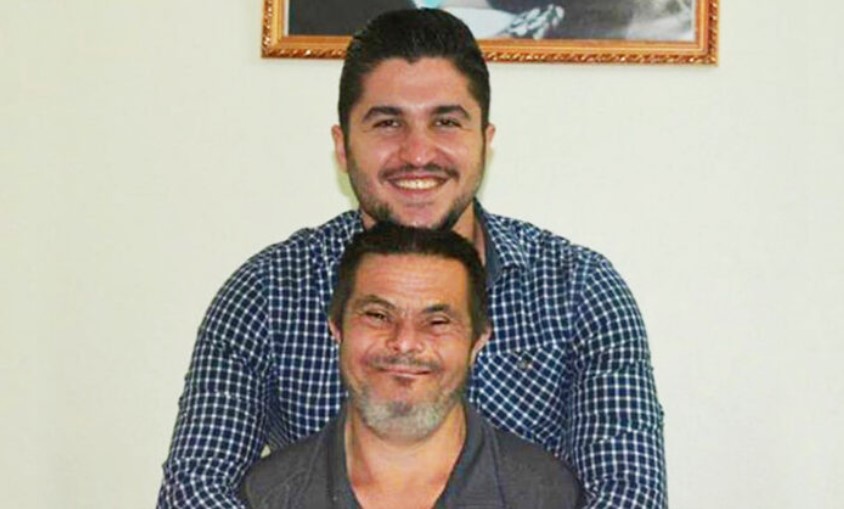Evil can be defined as the intentional wrong-doings of one person or group against another. It is a concept that has been around since the beginnings of human culture, and over thousands of years has found its way into various religions and philosophies. While it is often viewed as an entirely negative force, some scholars argue that evil can also ultimately lead to positive changes in society, as it forces people to confront their own ideas about morality and justice.
In essence, evil is when an individual or collective entity willingly acts against another in a malicious or harmful manner. This could involve physical violence or exclusion from resources or opportunities, but it can also take subtler forms such as spreading lies or manipulating someone for personal gain. Whatever form it takes, evil can have dire consequences, ranging from devastating psychological pain to even death.
Ultimately, evil personifies the darkest parts of humanity: selfishness, greed, and cruelty. It suggests a disregard for other people’s rights and feelings, with little consideration for the potential consequences of actions taken.
An evil person is someone who willingly and purposely harms another individual or group, either through physical violence, psychological manipulation, or the deprivation of resources or opportunities. Evil people are often driven by self-interest, power, and greed, they rarely consider the devastating consequences of their actions. They tend to be selfish and ruthless, disregarding morality and justice in favor of achieving their goals. In some cases, an evil person’s thirst for control can become so extreme that it leads to further suffering for those around them.
A recent study from the University of Copenhagen found that evil people have several distinctive traits. The research identified four main types of evil behavior: 1) selfish motives, 2) power-seeking, 3) sadism, and 4) recklessness.
The scientists found that those with a selfish motives had little regard for other people’s interests or needs, while power-seekers sought control over others in order to feel important. Sadists derived pleasure from the suffering of others, and recklessness was characterized by impulsivity and a lack of consideration for their own safety. The study also noted that some individuals may display a combination of these traits or even rotate between them as their situation changes.
Evil people share a dark trio of traits known as “the dark triad”. These traits all stem from the same root, which scientists call “The Dark Factor of Personality.” This includes selfish motives, power-seeking, sadism, and recklessness. The trio of triads is combined of narcissism, Machiavellianism, and psychopathy. These 3 have similarities but also individually they are very unique
The study also noted that some individuals may display a combination of these traits or even rotate between them as their situation changes. It highlights how complex evil behavior is, and underscores how difficult it can be to anticipate the actions of an evil person.
Let’s see the warning signs that can indicate that one person is evil:
They lack empathy and show no remorse
They lack empathy, often demonstrating no remorse or guilt for their actions. Such people can seem manipulative and controlling and they may even use intimidation or threats to gain control in a situation. They exhibit selfish behavior and are unapologetic when something goes wrong, blaming others instead of taking responsibility for their mistakes.
They always try to take advantage of you and manipulate situations for their benefit
They are likely to lie or distort the truth in order to get what they want while avoiding the consequences of their actions. People who lack empathy can be very calculating in the way they handle relationships, often trying to control or possess others. They tend to feel entitled to certain privileges even when it’s unwarranted or unwelcome.
They tend to be jealous, controlling, and possessive when it comes to relationships
They may become overly protective of their partner or be suspicious of any attention they receive from others. They prefer to have complete control in a relationship and will often expect their partner to act exactly how they want them to. People who lack empathy can sometimes show signs of jealousy or rage quickly if they don’t get their own way.
They are often selfish and put their own needs ahead of everyone else’s
They don’t understand the feelings of others, so they think only about themselves and how to achieve their goals. They may overlook the consequences of their actions, not caring about the impact that it has on those around them. People who lack empathy often make decisions without considering the feelings of others.
They are unapologetic and blame others for their misdeeds or mistakes
They don’t take responsibility for their own behavior, instead choosing to place the blame on someone else for any issues that arise. People who lack empathy may be unable to understand why their actions were wrong and will not accept any criticism or criticism of their choices.
Even when they say they’re sorry, their apology rarely seems sincere or heartfelt
Their words lack the emotion and understanding necessary to create a genuine connection with someone else. The individual may not be aware of the hurt they have caused and won’t accept any responsibility for their actions. This can leave those on the receiving end feeling empty and unsatisfied, as though nothing has been resolved.
They have a tendency to lie or distort the truth to get what they want or avoid responsibility for their actions
Lies and twisted truths can be seen as a way to manipulate the situation and people in it, often without any regard for who might be affected by these half-truths. It serves as a form of self-preservation for those who lack empathy, as they don’t take into account the consequences that come with such dishonesty.
They become easily offended and rarely accept criticism gracefully
Any kind of feedback is taken as a personal insult or attack, regardless of whether it was meant that way or not. Criticism triggers their insecurities, making them feel vulnerable and often leading to defensiveness or denial. They struggle to take any kind of constructive advice, instead resorting to blame or counter-accusations.
They make plenty of excuses for why things didn’t go well or why they behaved the way they did instead of taking responsibility for their actions
Rather than taking responsibility for their actions, they offer up alibis and rationalizations in order to shift the blame. These excuses range from blaming external forces such as fate or divine intervention to making arguments of justification based on external factors. Such behavior is a sign of immaturity and an inability to accept personal mistakes.
They rely heavily on threats, intimidation, and manipulation tactics in order to get what they want from people
They heavily rely on tactics of threat, intimidation, and manipulation in order to coerce people into acquiescing to their demands. These practices are employed in order to gain control and power over others, often without regard for the feelings or rights of those involved. This kind of behavior is a clear indication of a lack of respect or empathy towards others and is not an acceptable way to achieve one’s goals.
They generally feel entitled to certain privileges regardless of the context or situation
They heavily rely on tactics of threat, intimidation, and manipulation in order to coerce people into acquiescing to their demands. These practices are employed in order to gain control and power over others, often without regard for the feelings or rights of those involved. This kind of behavior is a clear indication of a lack of respect or empathy towards others and is not an acceptable way to achieve one’s goals.
They thrive in chaos and drama because it allows them to stay in control
They revel in the chaos and drama of their own making, as it gives them an opportunity to remain firmly in control. This kind of environment means that they always have the upper hand and can manipulate the situation to their advantage. Such behavior may seem desirable in the short term but can lead to long-term difficulties for those involved as it reinforces a cycle of toxic power dynamics.
They can be very hostile toward those who oppose them
They can be very hostile towards those who dare to oppose them. This aggression often manifests in the form of verbal or psychological abuse and is intended as a way to intimidate people into submission. Such behavior is unacceptable and should not be tolerated in any form.
They don’t hesitate to take credit or praise when it isn’t deserved
They have no qualms about taking credit or receiving compliments for things they haven’t necessarily earned. They’re always looking for any opportunity to boost their sense of self-worth, even if it means unfairly taking something away from someone else. It’s a selfish and unbecoming trait that should be discouraged.
Last but very important thing to remember
If you find yourself in a relationship with someone who displays malicious or cruel behavior, it is important to remember that you do not have to be in an abusive situation.
Here are some steps you can take to get out of your unhappy and potentially unhealthy situation:
- Talk to a trusted friend or family member about the situation and seek their advice on how to proceed.
- Consider seeking professional help from a therapist or counselor to work through the difficult emotions surrounding the relationship.
- Create an escape plan and be prepared for any potential changes that may come as a result of leaving the relationship.
- Don’t be afraid to reach out for support or assistance when needed, either online or through local resources.
- Remember that no one deserves abuse, no matter what the circumstances are, and that it’s never ok to stay in an unsafe environment.







